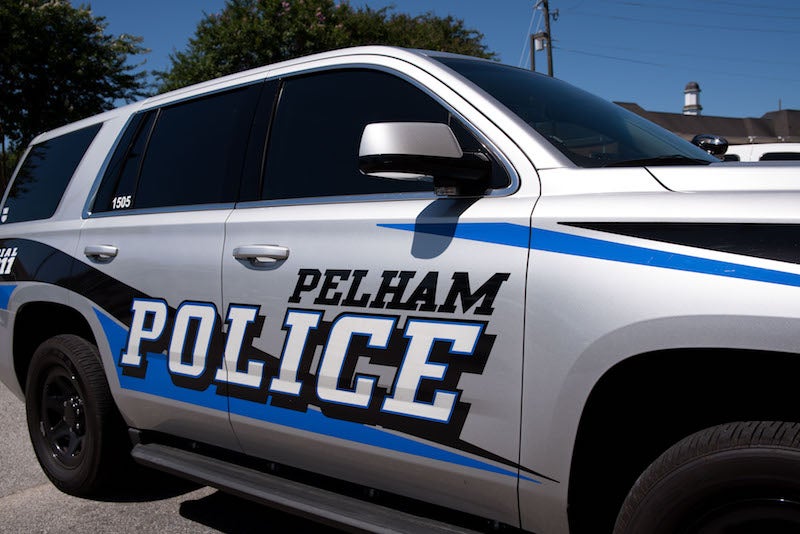Shelby County law enforcement set to fight human trafficking during World Games
Published 4:44 pm Thursday, June 30, 2022

- Five people from out-of-state were arrested and charged in connection with recent diesel fuel thefts from a local gas station. The suspects were apprehended by the Pelham Police Department on Friday, Aug. 5. (File)
|
Getting your Trinity Audio player ready...
|
By MICHELLE LOVE | Staff Writer
The 2022 World Games will feature 3,600 athletes from more than 100 countries over an 11-day period in Birmingham. With the influx of people coming in from all across the world, law enforcement agencies across Shelby and Jefferson Counties are preparing for another surge: Human trafficking.
Over the years, I-20 has been referred to by law enforcement agencies as the “sex trafficking super highway” as the majority of human trafficking takes place in the south with the highway crossing through multiple states across the U.S.
With that knowledge, law enforcement agencies have increased officer training and opened lines of communication amongst different resources such as Blanket Fort Hope, a nonprofit dedicated to fighting child sex trafficking, hotel managers and neighboring law enforcement agencies.
Sgt. Brad Jordan with the Criminal Investigation Division of the Pelham Police Department said that Pelham police and other law enforcement agencies in the metro area enjoy a mutually beneficial partnership with advocacy partners such as Blanket Fort Hope.
“These organizations fill a vital role in our ability to break the cycle of trafficking by providing resources such as housing, addiction treatment and education,” he said.
According to Josh Bean, a representative of the World Games public relations team, the World Games 2022 is partnering with the U.S. Department of Homeland Security, the city of Birmingham, the Junior League of Birmingham and others to bring greater attention to the issues of human trafficking.
“The World Games is requiring all of its 3,300 volunteers to go through training facilitated by the Junior League about human trafficking,” Bean said. “With this training, our community will have more people than ever before with the ability to identify and stop human trafficking. This is another example of how we are using The World Games 2022 to build a stronger community that extends beyond the actual competition.”
Shelby County Sheriff John Samaniego said the Sheriff’s office is planning on supporting Hoover Police Department and Pelham Police Department in their World Games events, but the issue of human trafficking is a year-round endemic the Sheriff’s office always has their eyes on.
“We always have our eyes open, and it seems like, in Shelby County, the hotels on the interstate have been primarily the sources for behavior like that,” he said. “We have policed in conjunction with Hoover and the FBI and DHS on different details. We are aware of it, and we have relationships with hotel managers and actually put a training on for them a year or so ago. We’ve been working very well with them, they give us the tips we need to put us legally in a position to act.”
Jordan said that all law enforcement officers are provided instruction on recognizing and diagnosing the possible signs of human trafficking. If a trafficking situation is suspected, officers will notify an investigator trained in those investigation specifics and, or the FBI Human Trafficking Task Force. When an investigation is initiated, victim services personnel are notified to assist with housing, medical, counseling, and addiction treatment.
At the property unveiling for Blanket Fort Hope’s therapeutic restoration home for trafficking survivors on Thursday, June 9, state Attorney General Steve Marshall said the World Games has started a progressive conversation in how trafficking is handled in the state.
“In a way, one of the benefits of the World Games has been all of the discussions we have had about human trafficking,” Marshall said. “We’ve been able to bring lots of groups, not just law enforcement together, and I think we’re going to see something tangible from that. There’s been a lot of planning around what we need to do from the law enforcement side.”
Jordan said red flags related to a trafficking situation include: Demonstrating a lack of freedom such as no phone, restricted movements and lack of identification; signs of addiction, malnourishment or abuse (if accompanied, consider if the other individual present the same signs); if a conversation with the individual seems stilted, rehearsed or if the individual defers to another person for an answer.
If someone should suspect they’ve encountered a trafficking situation, both Jordan and Samaniego say the best thing the person can do is alert authorities to the matter so they can take care of it.
Jordan said victims of trafficking often don’t see themselves as victims and will fight any help given by an outside party.
“Victimization does not occur overnight, and these trafficked individuals become brainwashed into accepting and can respond to outside interference, whether it be from well-meaning citizens or law enforcement, with behavior ranging from apathy to outright hostility,” he said. “With this in mind, it is always preferable for citizens to observe and document (location, time, and details) their suspicions if they believe they’ve encountered a trafficking situation.”
Jordan encouraged that if anyone should see a situation that rouses their suspicions to contact their local police department, when it is safe to do so, and/or the National Human Trafficking Hotline (888-373-7888) to provide any observations and concerns they may have.









